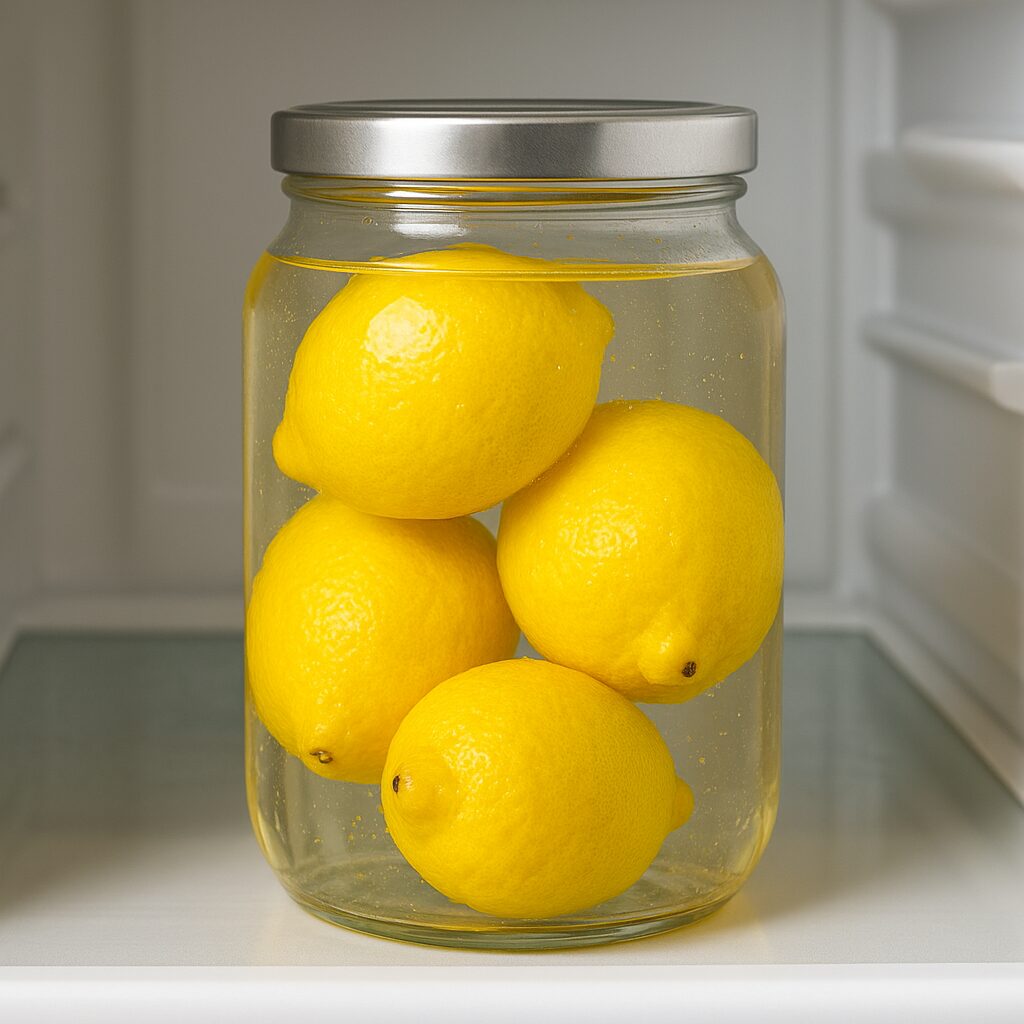Lemons are widely used for cooking, beverages, and wellness routines due to their refreshing flavor and high vitamin C content. However, they may lose moisture or develop mold quickly if not stored properly. By choosing the right storage method, it may be possible to extend their freshness and enjoy their benefits longer. This article explains several effective ways to store lemons at home.

1. Short-Term Room Temperature Storage
Lemons may stay fresh at room temperature for about 3 to 5 days if kept in a cool, ventilated area away from direct sunlight. Beyond this period, the skin may dry out and mold may develop, especially in warmer seasons.
2. Basic Refrigeration
Storing whole lemons in the refrigerator may help retain freshness for 3 to 4 weeks. Keeping them unwashed in a plastic bag or airtight container inside the crisper drawer may reduce moisture loss and preserve texture.
3. Storing Lemons in Water
Placing whole lemons in a sealed container filled with water and refrigerating them may extend freshness. The water may prevent dehydration and reduce the risk of mold. It is generally recommended to change the water every 2 to 3 days.
4. Cut Lemon Storage
Once a lemon is cut, it may dry out quickly. Wrapping the cut side with plastic wrap or placing it in an airtight container may help keep it moist for up to 3 days in the refrigerator. Adding a light sprinkle of sugar may also slow oxidation.
5. Freezing Lemons
For long-term use, freezing lemons may be effective. Slices can be frozen in a bag, or juice can be frozen in ice cube trays for later use. Frozen lemons may last 2 to 3 months and are convenient for drinks and cooking.
6. Lemon Juice Storage
Lemon juice may be refrigerated for up to 3 to 4 days in a sealed container. For longer storage, freezing juice in small portions may be useful, allowing single servings when needed.
7. Lemon Zest Storage
Lemon zest may be frozen in airtight bags or containers to preserve aroma and flavor. It may be a practical way to add zest directly into baking, sauces, or marinades without waste.
8. Tips for Preventing Mold
Before storage, lemons should be lightly rinsed and thoroughly dried. Excess surface moisture may encourage mold growth. Using airtight containers or sealed bags may provide extra protection.
🌿
Choosing the right method may depend on how soon the lemons will be used. Room temperature may work for a few days, refrigeration may preserve freshness for weeks, and freezing may extend usability for months. With simple steps, lemons may stay fresh and flavorful for a longer period in daily cooking.
References and Further Reading
United States Department of Agriculture (USDA) – Fruit Storage Guidelines
World Health Organization (WHO) – Food Safety Tips
American Heart Association – Healthy Cooking and Fresh Produce
※ This article is for general informational purposes only. Storage results may vary depending on home conditions, and hygienic handling is recommended for safe use.